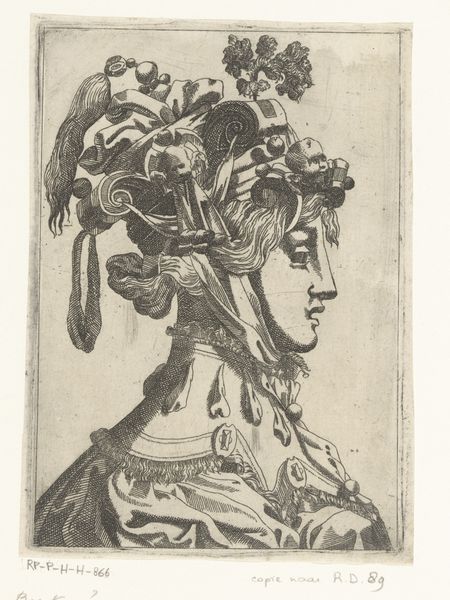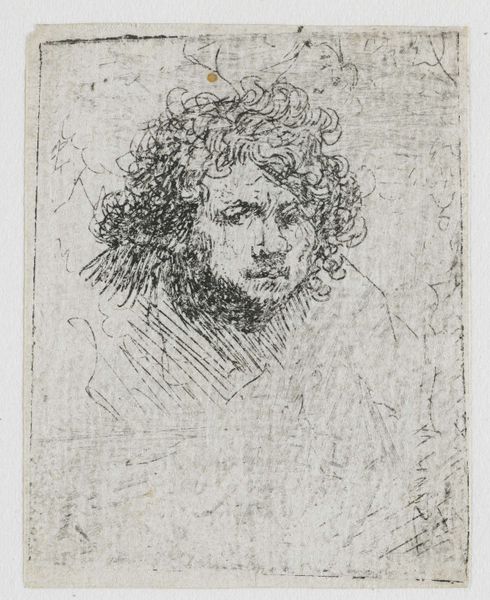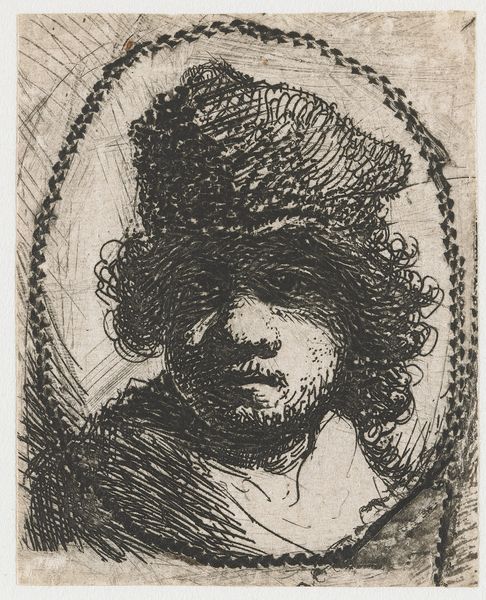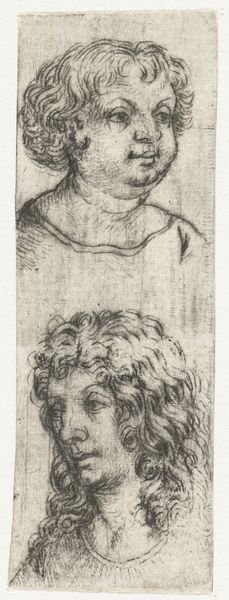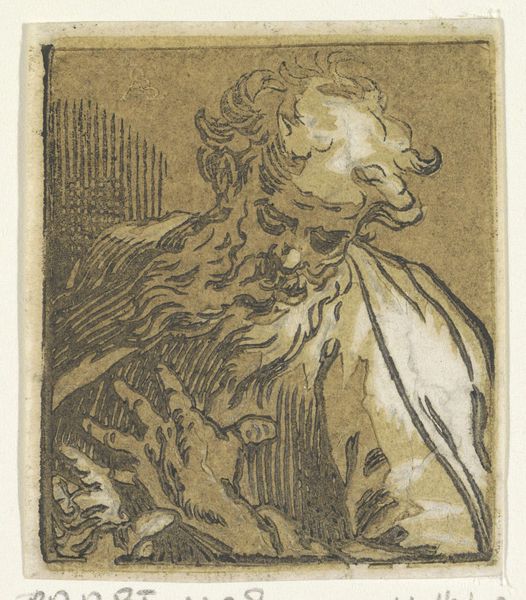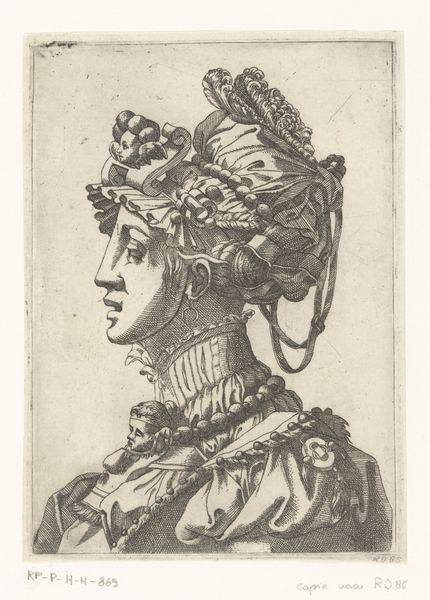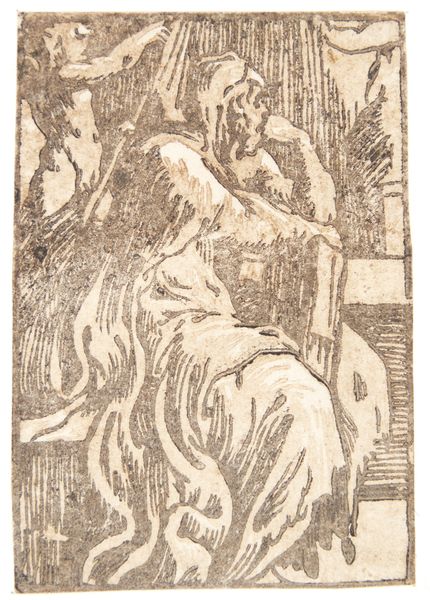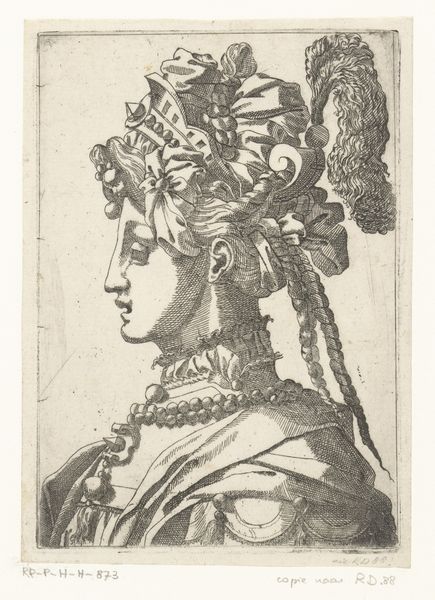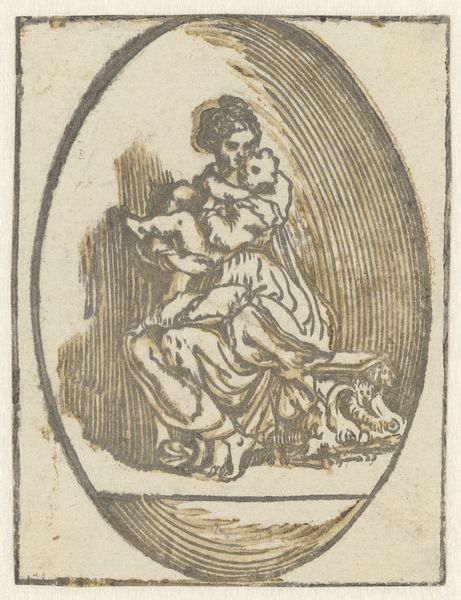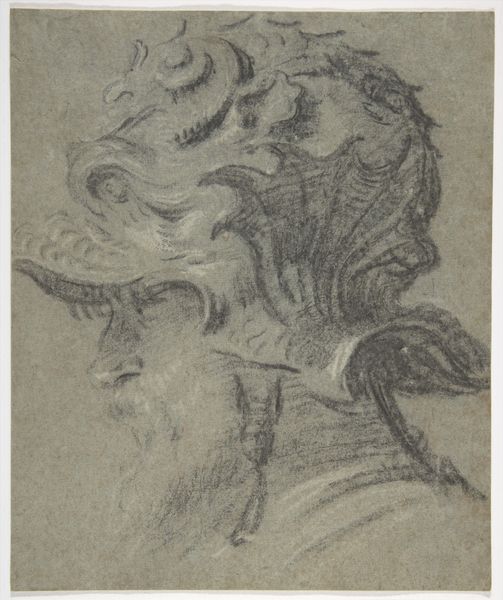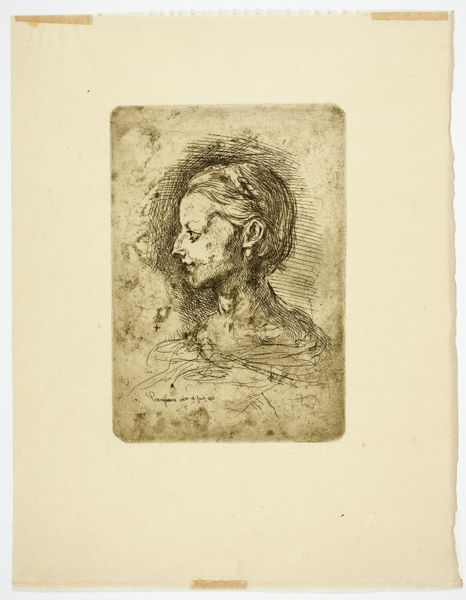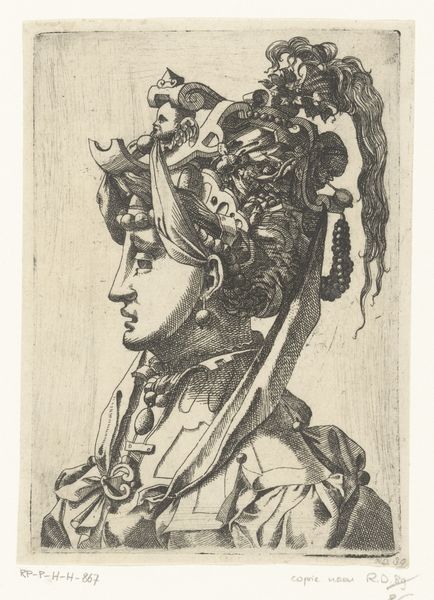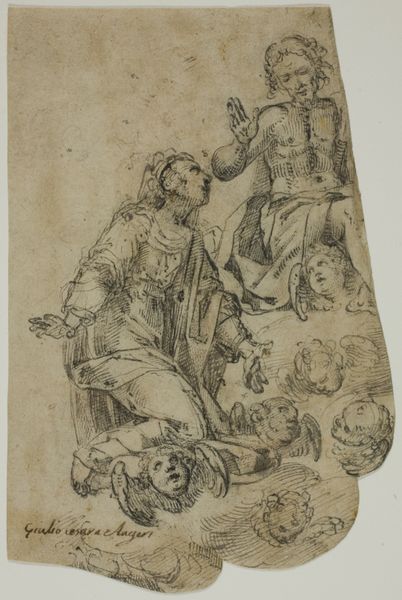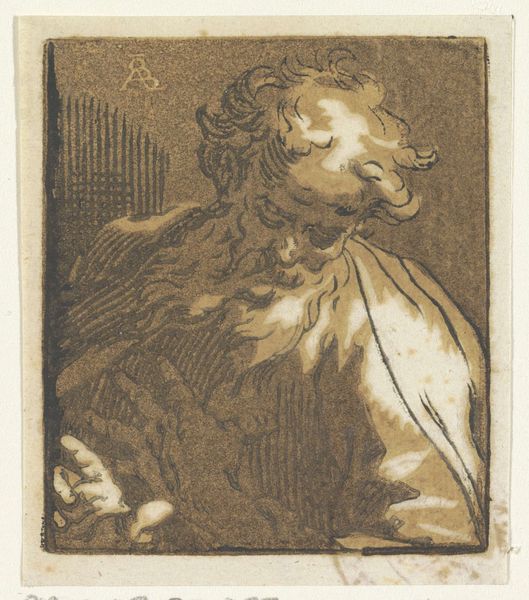
print, engraving
#
portrait
# print
#
engraving
#
realism
Dimensions: height 105 mm, width 70 mm
Copyright: Rijks Museum: Open Domain
This is Willem Linnig the Younger’s 1875 etching, "Portrait of an Unknown Woman," now in the Rijksmuseum. Linnig created this delicate print through etching, a process involving coating a metal plate with wax, drawing through it to expose the metal, and then bathing the plate in acid. The acid bites into the exposed lines, which are then inked to create the print. The magic of etching lies in its capacity for fine detail and tonal variation. Look closely, and you’ll see how Linnig uses a dense network of lines to model the woman’s face, hair, and clothing. The etching process allows him to capture the texture of her elaborate hairstyle. The social context of this work is interesting. Etchings like this democratized image-making. Compared to painting, printmaking allowed artists to produce images in multiples, making them more accessible to a wider audience. This intersects with broader trends of labor and consumption in the 19th century. Ultimately, "Portrait of an Unknown Woman" reminds us that the most compelling art often emerges from a deep engagement with materials, process, and the social conditions of its making.
Comments
No comments
Be the first to comment and join the conversation on the ultimate creative platform.
